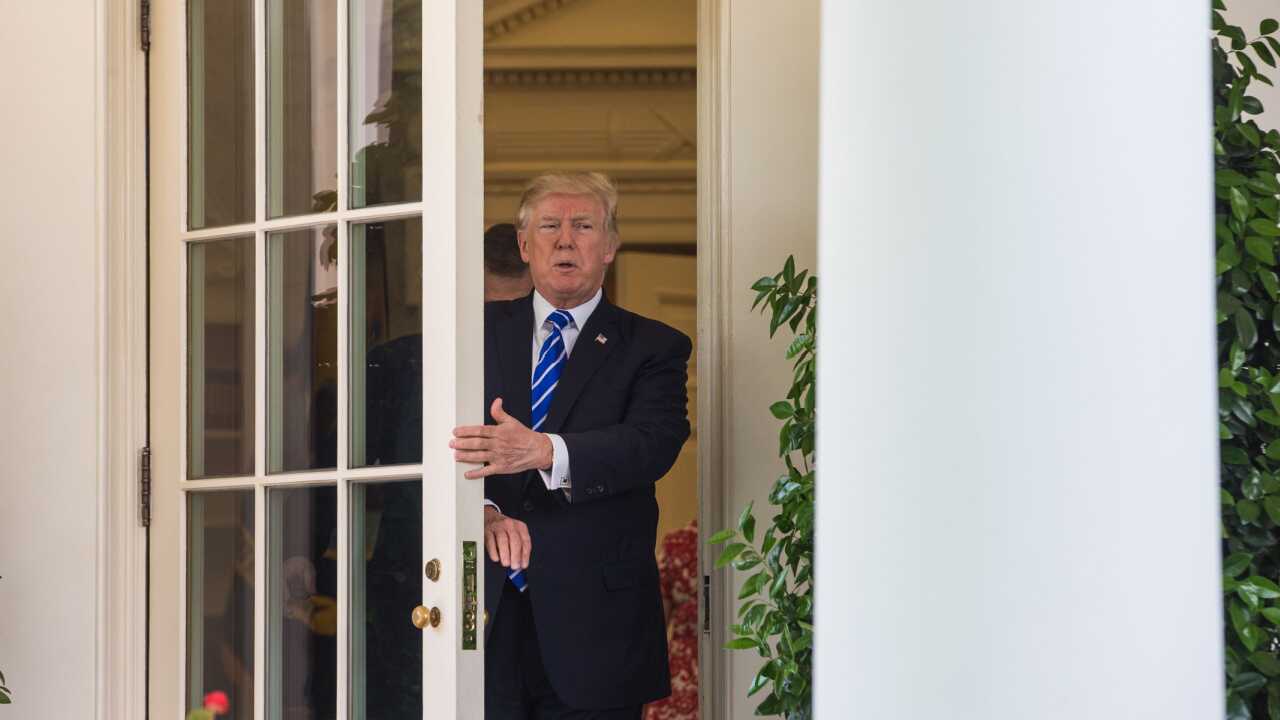
Trump’s Tariffs Will Be A Disaster
Combined tax cuts and tariffs on imports will only increase the national debt and inflation.
It was said of the Bourbons upon their restoration after the French Revolution and the rule of Napoleon that they had learned nothing and forgotten nothing. We have to wonder whether something similar might be said of President Donald Trump with his proposed economic policy to reduce the trade deficit. On his first day in office, he showed every sign of planning the same sort of policies to reduce the trade deficit that failed so miserably in his first term in office.
One thing that Mr. Trump did not learn in his first White House stint is that a country’s trade deficit is the result of a country spending more than it produces. Or, as Keynes taught us, it is the result of a country saving less than it invests. As long as it invests more than it saves, it will have a trade deficit. The economic arithmetic remains true no matter how high a country sets its import tariff level.
Failing to grasp this fundamental economic principle in his first term, Mr. Trump thought that hiking tariffs was a sure route to getting rid of the trade deficit. With that in mind, he imposed 10–25 percent tariffs on around $380 billion worth of imports from China, including a 25 percent tariff on steel imports and one of 10 percent on aluminum. Yet despite these tariffs, under his watch, the U.S. trade deficit increased by 40 percent from $480 billion in 2016 to $680 billion in 2020.
The basic reason for the widening deficit was that at the same time that he hiked tariffs, he enacted a large-scale tax cut in the form of the 2017 Tax Cuts and Jobs Act (TCJA). According to the Congressional Budget Office, over the following decade, that piece of legislation swelled the budget deficit by somewhere between $1 trillion and $2 trillion. From a trade balance perspective, Trump’s tax cuts had the effect of both reducing the country’s savings level, as reflected in a widening budget deficit and increasing its investment level by providing corporations with tax relief. Little wonder then that the trade deficit widened in Mr. Trump’s first term.
Fast forward to today, and Mr. Trump is proposing to repeat his earlier combination of tariff hikes and tax cuts, but this time on steroids. On the campaign trail, he committed himself to a 60 percent import tariff on China and one of 10-20 percent tariffs on the rest of our trade partners. Meanwhile, this week, he indicated that on February 1, he intends to impose a 10 percent tariff on China and one of 25 percent on Canada and Mexico. He has also ordered a review of the unfair trade practices of Mexico, Canada, and China, presumably as a prelude to further tariff increases.
Seemingly unfazed by the fact that he has inherited a budget deficit that is some 6.5 percent of GDP and a national debt that is well over 100 percent of GDP, Mr. Trump is proposing to extend the 2017 TCJA and to eliminate income taxes on social security and tips. According to the Committee for a Responsible Budget, over the next decade, those tax cuts will add $7.75 trillion to the budget deficit.
All of this has raised serious questions as to the risks that Mr. Trump’s proposed economic plan poses to the U.S. and world economies. First, surely those policies must be expected to cause a further widening of the trade deficit as they cause the government’s savings to plummet while incentivizing investment. Second, they must be expected to complicate the Federal Reserve’s task of reducing inflation by increasing the domestic cost of imports. Third, tariffs of the size being contemplated must be expected to invite retaliation by our trade partners that could take us down the road to the 1930s beggar-thy-neighbor policies that were so destructive to international economic prosperity. Fourth, there is the very real risk that the Trump tariffs will push the already struggling and export-intensive Chinese and European economies into recession. That, in turn, could adversely impact our export sector, our financial system, and the profitability of our corporations.
For all of these reasons, we have to hope that now in office, Mr. Trump will substantially water down his campaign commitments to aggressive tariff hikes and tax cuts. Unfortunately, judging from his actions over the past two days, there is no sign that he will do this without some sort of financial market meltdown.
Desmond Lachman as a Senior Fellow at the American Enterprise Institute. Previously, he was a deputy director in the International Monetary Fund’s Policy Development and Review Department and the chief emerging-market economic strategist at Salomon Smith Barney.
Image: Gil Corzo / Shutterstock.com.